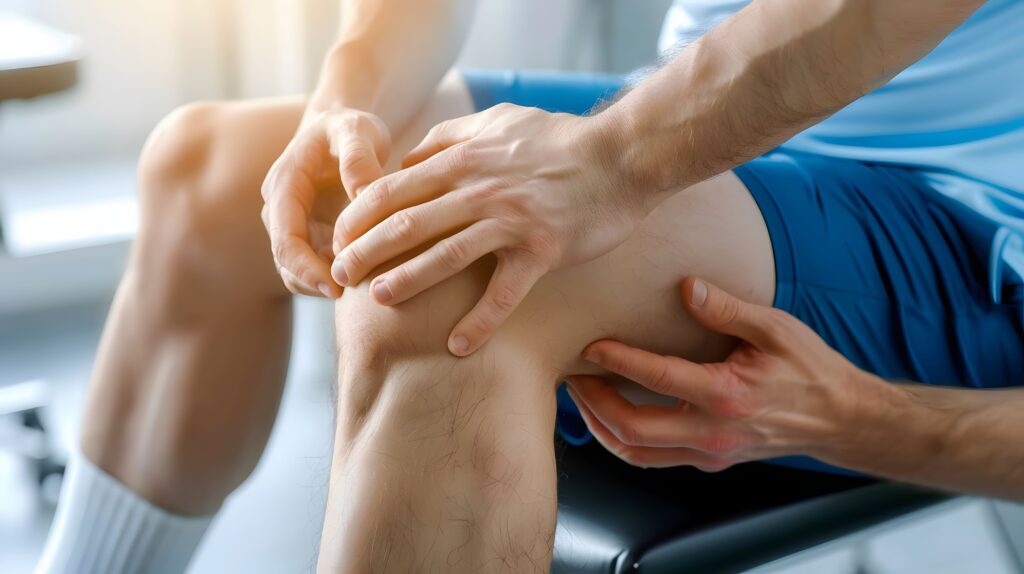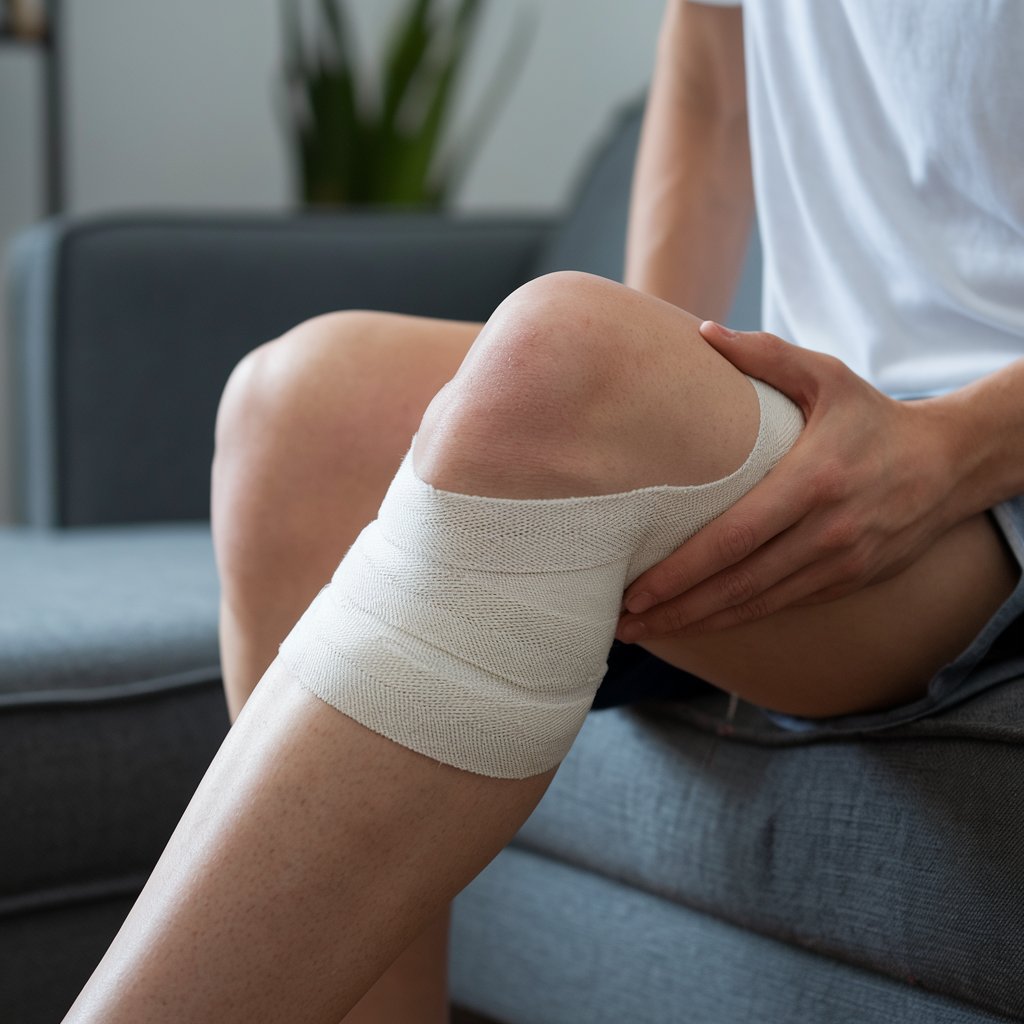Knee pain: from osteoarthritis diagnosis to definitive treatment

Knee osteoarthritis is a common condition that causes pain and limited mobility. Treatment options range from conservative therapies to knee replacement surgery, depending on the severity. It’s important to avoid exercises like squats and leg presses to prevent worsening symptoms. After surgery, swelling is common due to fluid accumulation around the joint, but it can be managed with proper care. Many health insurance plans cover knee replacement surgery, allowing patients to regain mobility and relieve pain.
Exercises to avoid with knee osteoarthritis

If you have been diagnosed with knee osteoarthritis, it is helpful to know which exercises to avoid to prevent worsening pain caused by inflammation. One of the most common causes of knee pain is osteoarthritis. If you have been diagnosed with this condition, it is useful to know which exercises to avoid to prevent worsening […]
Knee prosthesis: post-operative rehabilitation

Rehabilitation after knee prosthesis surgery focuses on reducing pain, restoring joint mobility, and strengthening muscles. This process begins immediately after surgery and lasts about 8 weeks, with tailored exercises that help patients regain independence in daily activities.
Knee prosthesis intervention protocol: a guide for patients

This guide provides an overview of the knee prosthesis intervention protocol, focusing on pain management, pre-surgery preparation, and post-operative recovery exercises. It explains key steps for managing knee pain, including conservative therapies, and highlights the importance of rehabilitation exercises to ensure a quick and effective recovery after knee replacement surgery.
Pathologies and possible interventions: healing with knee prosthesis

The article explores knee prosthesis interventions, focusing on conditions treatable by knee replacements, including osteoarthritis, osteonecrosis, and rheumatoid arthritis. It details the differences between total and partial knee prostheses and emphasizes the benefits of minimally invasive procedures, such as quicker recovery times, reduced pain, and improved mobility. Additionally, the article outlines pre- and post-operative care, including essential exercises for rapid healing and the advantages of new generation prostheses tailored to patient needs.
Knee replacement surgery: duration, risks and benefits

Symptoms, types, characteristics and benefits of knee replacement surgery. Knee replacement surgery can heal chronic degenerative cartilage diseases like osteoarthritis and can also be the definitive treatment for acute conditions such as bone necrosis. In total knee replacement (also called arthroplasty) the damaged cartilage and bone are removed and replaced with a prosthesis. The total […]
Knee swelling after knee replacement surgery

This article discusses the common occurrence of knee swelling after knee replacement surgery, covering its causes, treatment methods, and preventive measures. Swelling results from fluid accumulation due to trauma during surgery, but can be managed with rest, ice application, compression garments, and medications. Pre- and post-operative strategies, including physiotherapy and weight management, are essential in minimizing swelling and ensuring a smooth recovery.
Total knee replacement

This comprehensive article provides an in-depth look at total knee replacement surgery, covering the anatomy of the knee, common conditions that may require a prosthesis, and a detailed explanation of the surgical procedure. It also discusses the different types of knee prostheses and the materials used in their construction.
Knee replacement surgery: everything you need to know

This article provides a comprehensive overview of knee replacement surgery, covering the anatomy of the knee joint, common problems that may require a prosthesis, and details on the surgical implantation process. It also discusses the risks of avoiding surgery and the long-term benefits of undergoing knee replacement.

